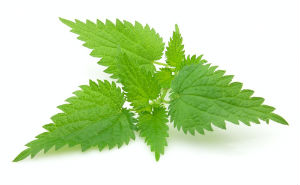Natural painkillers for dogs, cats and horses
When our horses, dogs or cats are chronically ill, we sometimes cannot avoid a treatment with painkillers or anti-inflammatories. The chemistry kitchens of pharmaceutical companies offer us the ‘Nonsteroidal anti-inflammatory drugs “(NSAIDs) or” NSAIDs “(NSAP) such as aspirin, ibuprofen, diclofenac, etc. These drugs relieve the symptoms of a disease (pain, inflammation), but they do not fight the causes. As a result, they become a permanent companion for some animals. With partly life-threatening consequences. Because NSAIDs or NSAP have partly considerable side effects. Horse, dog and cat owners who have been haunted by the suffering of their pets are therefore often looking desperately for a way out and then try out phytotherapy (herbal medicine). But are plants actually a drug to fight pain and inflammation?
 Recently, I got an email from a dog owner. His favorite four-legged friend was suffering from various inflammatory and degenerative musculoskeletal disorders which were treated with painkillers for a long time, after which the animal had suffered a perforation. The man knew his dog´s illness very well and was super informed. He reported that his family had already tried everything and asked me now, if I had any idea of what to do.
Recently, I got an email from a dog owner. His favorite four-legged friend was suffering from various inflammatory and degenerative musculoskeletal disorders which were treated with painkillers for a long time, after which the animal had suffered a perforation. The man knew his dog´s illness very well and was super informed. He reported that his family had already tried everything and asked me now, if I had any idea of what to do.
This is no individual case. Far too often, I learn of horse, dog or cat owners, how much damage the NSAPs can wreak. Most of the stomach is affected: stomach bleeding, stomach ulcers, gastritis or even perforation. How can this happen? Let´s take Aspirin as an example : The active ingredient of aspirin is acetylsalicylic acid = ASA. The acetyl group has the property to prevent blood clotting, which can then cause bleeding in the gastrointestinal tract. Even Ibuprofen and diclofenac go to the stomach. Paracetamol may be toxic to the liver. The choice between different anti-inflammatory drugs is therefore in terms of side effects, the choice between the plague and cholera.
So, back to nature regarding natural painkillers for dogs, cats and horses?
Unfortunately, it’s not that simple. Although the excellent analgesic and anti-inflammatory effects of many plants have been proven by studies (mostly however only in humans), anyone who thinks that herbal painkillers had no side effects, unfortunately is mistaken. Even Paracelcus warned in terms of Phytotherapy “the dose makes the poison”. If plants were generally absolutely harmless, he would not have felt called upon to point out a responsible dosage. Therefore, many – but not all – natural substances are as irritant to the stomach as their synthetic counterpart – both for humans and for the horse, the dog and the cat. Incense, Yucca, Chilli, devil’s claw, ginger … all very potent plants … but just as strong in their side effects. For they also attack the stomach. That is why the above-mentioned plants are useful only as a short trigger but not in the long-term treatment.
However, there are also natural herbal painkillers for dogs, cats and horses without significant side effects!
Willow bark especially for dogs
The aforementioned dog owner was advised by his veterinarian to not use willow bark, on the ground, that this is the same as aspirin and would therefore also have the same side effects. Indeed, but this is not the case. For, although both have in common salicylic acid (salicin) as an active ingredient, they differ considerably in another point: willow bark does not have the additional occurring aspirin acetyl group and therefore not the devastating side effects. (And, yes, as already mentioned above, it is the acetyl group, which triggers microhaemorrhages, NOT the salicylic acid!) Recent studies even assume that the pain-relieving effect of willow bark is not only due to the salicin, but also to the other components of the willow bark such as tannins, proanthocyanidins and flavonoids. The only contraindication to the use of willow bark is a “Salicyl acid hypersensitivity” (0.2% of the human population suffer from it) and, unfortunately, the use in cats. Because cats can only degrade salicylic acid partly due to a glucuronidation weakness – it can therefore lead to poisoning.
However, humans are being recommended the use of willow bark in chronic diseases because, even though it builds its effect slower than aspirin, it can provide sustainable pain relief without side effects. Equally helpful I find willow bark for dogs. Horses, however metabolize the salicylic acid in one hour, which is not enough time to establish effective blood levels. Nevertheless, you can use willow bark in horses. The reason is that I have observed horses feasting on a willow tree in the cold season. Therefore the plant must bring them some kind of benefit.Even if it is only a short kick for the body. Nevertheless, every horse owner should be aware of the half-life of salicylic acid in the horse, because that separates the willow bark from a durable and constant pain treatment!
Natural painkillers for dogs, cats and horses … Here´s another advantage that plants have to drugs:
Plants intervene directly in the inflammatory process, rather than just to inhibit it
Nettle e.g.
 The NSAID or NSAP only fight the symptoms. They inhibit pain transmission and inflammation. According to studies, plants can do more than that. And so we’ll get to another herbal painkiller and anti-inflammatory that is often underestimated or not detected: the nettle. Several studies showed that the nettle does not only have analgesic and anti-inflammatory effects, but also engages directly in the inflammatory process. How does it do it? It inhibits cytokines. These are the body’s own messengers that, in a complex sequence of events such as the attack of cartilage, lead to inflammation. Thus, there is direct intervention in the pathological event. Therefore, the nettle is not only a herbal painkiller and anti-inflammatories in the acute stage for horses, dogs and cats, but also a wonderful prophylaxis agents for example, Osteoarthritis predisposed animals in the early stages, etc.
The NSAID or NSAP only fight the symptoms. They inhibit pain transmission and inflammation. According to studies, plants can do more than that. And so we’ll get to another herbal painkiller and anti-inflammatory that is often underestimated or not detected: the nettle. Several studies showed that the nettle does not only have analgesic and anti-inflammatory effects, but also engages directly in the inflammatory process. How does it do it? It inhibits cytokines. These are the body’s own messengers that, in a complex sequence of events such as the attack of cartilage, lead to inflammation. Thus, there is direct intervention in the pathological event. Therefore, the nettle is not only a herbal painkiller and anti-inflammatories in the acute stage for horses, dogs and cats, but also a wonderful prophylaxis agents for example, Osteoarthritis predisposed animals in the early stages, etc.
The Rosehip
Another great herbal painkiller is rosehip (as dried whole fruit and powdered). This is due to its high content of naturally occurring vitamin C, which in ancient times has proven itself as particularly successful in the fight against inflammation, swelling and pain.
Pain-relieving plants for external use
Although they internally may need up to 3 weeks to reach their full analgesic potential, plants act immediately when applied externally. There is a wealth of opportunities – whereby not every plant is also equally skin-friendly. Anyone who wants to treat his horse or his dog longer with external applications, should take on the skin compatibility consideration. Because once the skin is damaged, another treatment won´t be possible for a long time.
Here´s a small collection without claim of completeness: Arnica (kind to the skin, except for Arnica allergy), comfrey (quite strong), nettle, fenugreek, calendula / calendula, cayenne pepper (strong irritant), St. John’s Wort (as oil), mint (as Oil)
And what about cats?
 Yes, the poor cats are somewhat at a disadvantage as opposed to horses and dogs in terms of herbal painkillers. Because of their glucuronidation weakness they tolerate neither salicylic acid (such as mentioned above) nor essential oils. The selection is quite narrow. Luckily they seem, at least according to my present knowledge, to tolerate both nettle and rose hips! This way you can also provide cats with herbal anti-inflammatories. However, outwardly should only be contemplated, which may also be used internally in cats. Because as we know the little tigers lick really EVERYTHING from their coat that doesn´t belong there. Therefore nettle (as outer and inner treatment), or healing earth are recommendable in their case. Any other liniments based on alcohol, essential oils etc should not be used for the sake of the cat.
Yes, the poor cats are somewhat at a disadvantage as opposed to horses and dogs in terms of herbal painkillers. Because of their glucuronidation weakness they tolerate neither salicylic acid (such as mentioned above) nor essential oils. The selection is quite narrow. Luckily they seem, at least according to my present knowledge, to tolerate both nettle and rose hips! This way you can also provide cats with herbal anti-inflammatories. However, outwardly should only be contemplated, which may also be used internally in cats. Because as we know the little tigers lick really EVERYTHING from their coat that doesn´t belong there. Therefore nettle (as outer and inner treatment), or healing earth are recommendable in their case. Any other liniments based on alcohol, essential oils etc should not be used for the sake of the cat.
